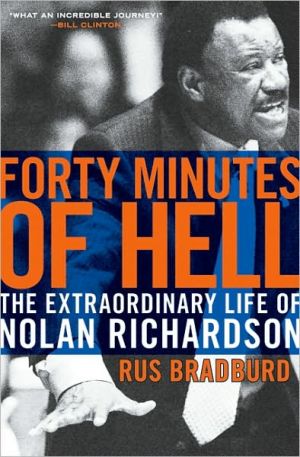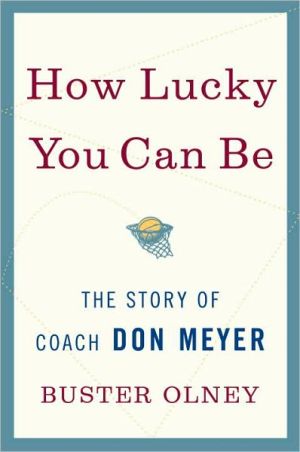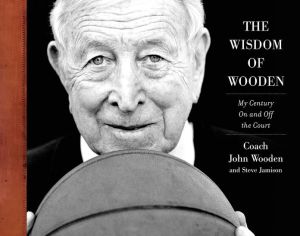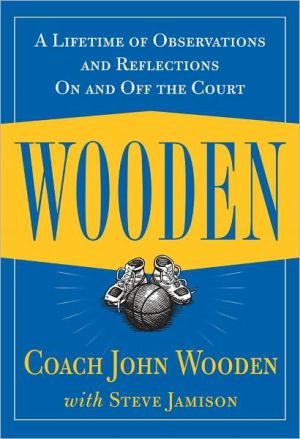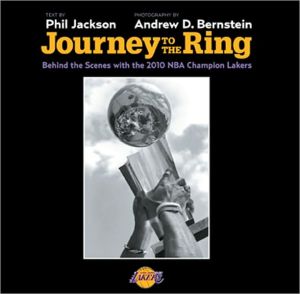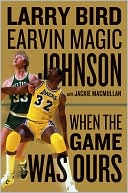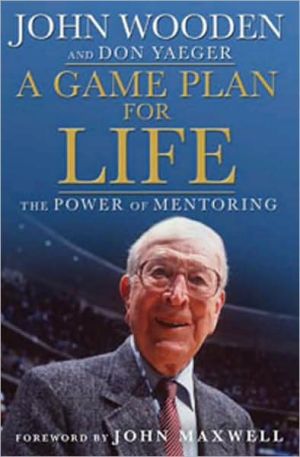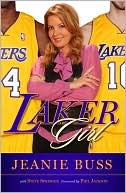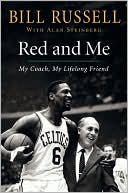Forty Minutes of Hell: The Extraordinary Life of Nolan Richardson
An exploration of the racial politics of American sports, from the Jim Crow era to the present day, witnessed through the life of legendary African-American basketball coach and NCAA title winner Nolan Richardson\ Born in El Paso's Segundo Barrio, or Second Ward, pioneering basketball coach Nolan Richardson grew up in the only black family in a Mexican neighborhood and attended desegregated Bowie High School in 1955. Richardson went on to play at Texas Western College, now the University of...
Search in google:
An exploration of the racial politics of American sports, from the Jim Crow era to the present day, witnessed through the life of legendary African-American basketball coach and NCAA title winner Nolan Richardson Born in El Paso's Segundo Barrio, or Second Ward, pioneering basketball coach Nolan Richardson grew up in the only black family in a Mexican neighborhood and attended desegregated Bowie High School in 1955. Richardson went on to play at Texas Western College, now the University of Texas at El Paso, as the first black star player for legendary coach Don Haskins. Richardson eventually rose to national prominence as a coach in his own right. He became the first black coach at a predominately white school in the Old South to win the NCAA Championship in 1994 at the University of Arkansas. With Richardson's Razorbacks playing at a high-pressure, electrifying pace-a style he called "Forty Minutes of Hell," which became a nationally known trademark-Arkansas made three appearances in the Final Four, and Richardson was named NABC Coach of the Year in 1994. Richardson's gradual political awakening, and his subsequent refusal to keep quiet about overt or subtle racial injustices, marked his rise. Regardless of his staggering win totals, tensions in Arkansas culminated in an infamous 2002 press conference in which he accused the University of Arkansas of discriminating against him, bringing about an abrupt end to his college coaching career. The only coach in history to win a Junior College National Championship, the NIT, and the NCAA tournament, Richardson went on to coach internationally and in the WNBA. Rus Bradburd, a former college basketball coach who also worked with Don Haskins, highlights Richardson's trailblazing career with empathy and intimacy, revealing a man whose hard-won successes were matched by deeply felt losses. An intensive inside look at elite collegiate athletics and a chronicle of the transition away from the segregated era of American sport, Forty Minutes of Hell is the first full-length biography of Nolan Richardson, setting his complicated story against the backdrop of a decisive time in American history. Boston Globe “There are so many amazing things to know and remember about Richardson, truly a sports hero and pioneer. . . . But Richardson’s life was about more than wins and losses, as Bradburd details in excellent and entertaining style.”
Prologue: Soul on Ice 1\ 1 A Bewitched Crossroad 7 l 2 Black Boy 12 l 3 The Known World 26 l 4 Native Son 37 l 5 Nobody Knows My Name 57 l 6 Going to the Territory 72 l 7 The Souls of Black Folk 101 l 8 God's Trombones 112 l 9 Invisible Man 125 l 10 The Edge of Campus 131 l 11 Tell Me How Long the Train's Been Gone 141 l 12 The Fire Next Time 149 l 13 Blues for Mister Charlie 158 l 14 Soledad Brother 163 l 15 Go Up for Glory 174 l 16 If Blessing Comes 188 l 17 Only Twice I've Wished for Heaven 203 l 18 Shadow and Act 214 l 19 Things Fall Apart 227 l 20 Makes Me Wanna Holler 240 l 21 Battle Royal 252 l 22 Your Blues Ain't Like Mine 263 l 23 Brothers and Keepers 267 l 24 Another Country 286 l 25 Go Tell It on the Mountain 297\ Acknowledgments 305\ Who's Who in Nolan Richardson's Story 309\ Bibliography 315
\ Kirkus ReviewsA combination career retrospective and racial history of Southern college basketball. It's unjust that the legacy of Nolan Richardson, legendary former University of Arkansas basketball coach, is distorted by a surreal 2002 press conference that resulted in his termination. Bradburd (Writing/New Mexico State Univ. Paddy on the Hardwood: A Journey in Irish Hoops, 2006) uses that incident-in which the frustrated coach rambled about slavery and proclaimed that if the university would pay him his money, they could take his job-as a springboard to explore Richardson's controversial yet undeniably influential life and career. Raised in segregated El Paso, Texas, Richardson became a multisport high-school star before playing for Don Haskins-the first coach to win an NCAA championship starting all black players-at Texas Western College, after which he embarked on a coaching career seemingly destined to fail because of his race. Still, Richardson persevered, rising through the ranks before breaking into Division I coaching at the University of Tulsa. He later achieved historical success at Arkansas in 1994, becoming only the second black coach to win a championship. His on-court achievements, however, were shadowed by personal troubles, including the death of his daughter and an acrimonious power struggle with Arkansas' athletic director, Frank Broyles. Richardson's staunch opposition to racist slights, both real and perceived, led to what Bradburd contends is an unfair reputation as an angry, ungrateful black man-a perception refuted by Richardson's habit of befriending older white men (including sportswriter Orville Henry and Tulsa booster Ed Beshara) and donating considerable amounts oftime and money to charities that aid children of all races. The author's ambitious attempt to contextualize Richardson's struggles within the larger historical framework of racism in the South adds nuance, but occasionally derails the narrative flow. Nevertheless, he manages to transform the prickly coach into a complex figure worthy of reexamination. Establishes Richardson as one of college basketball's most compelling figures, both because of and in spite of his race. Agent: Andrew Blauner/Blauner Books Literary Agency\ \ \ \ \ Slam Online"Bradburd does an incredible job chronicling Richardson’s rise from a high school coach to getting a junior college job. . . . [His] copy shines in the well-researched chapters on the black coaches and the athletes who came before Richardson but never got the opportunity to elevate themselves."\ \ \ New York Times"Highly provocative. . . . A sharp-elbowed biography."\ \ \ \ \ Boston Globe"There are so many amazing things to know and remember about Richardson, truly a sports hero and pioneer. . . . But Richardson’s life was about more than wins and losses, as Bradburd details in excellent and entertaining style."\ \ \ \ \ Sports Illustrated"[An] energetic biography. . . . Bradburd rounds out his story with humanizing detail."\ \ \ \ \ Tulsa World"Suggestion: Place a note pad nearby . . . in order to keep score of the ‘wow’ moments, as in ‘Wow, did that really happen? . . . Thanks to Bradburd’s book, you can walk in Richardson’s shoes, one page at a time.’"\ \ \ \ \ SLAM Online“Bradburd does an incredible job chronicling Richardson’s rise from a high school coach to getting a junior college job. . . . [His] copy shines in the well-researched chapters on the black coaches and the athletes who came before Richardson but never got the opportunity to elevate themselves.”\ \ \ \ \ Financial Times"[An] excellent, angry new biography."\ \ \ \ \ Dave Zirin"I’ve never read a sports book I would describe as operatic until now. Nolan Richardson’s story, both unique and universal, would challenge the most seasoned biographer, but Bradburd’s libretto is heartbreaking and inspiring. This is the finest sports biography I’ve read in years, hands down."\ \ \ \ \ President"What an incredible journey!"\ \ \ \ \ Charles Barkley"This is a great story about America and its hidden histories. . . Every black college coach with a good job today owes Nolan Richardson a measure of respect for the fearless way he kicked down doors. Every American should thank him for showing us it was possible."\ \
